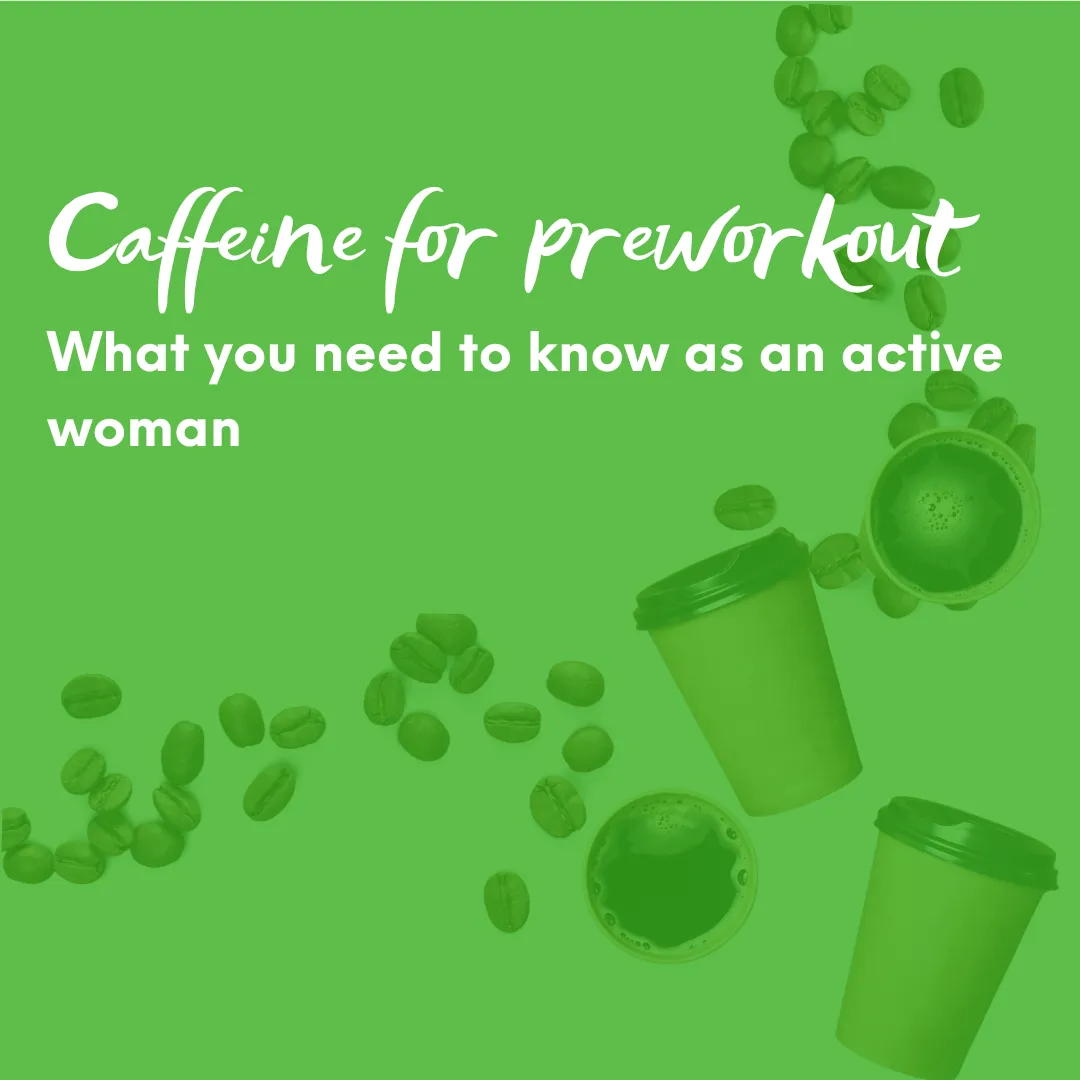Did you enjoy a cup of caffeine this morning?
Or are you saving your daily caffeine for your exercise session today?
Caffeine has been shown to improve jumping performance and power for upper and lower limbs.
Bonus – caffeine delays the onset of fatigue for upper and lower limb muscles.
Score!
Since it crosses the blood-brain-barrier, it can also increase vigilance during bouts of extended exhaustive exercise, especially if there’s sustained sleep deprivation.
Best time to drink your coffee to improve performance?
During or right before your event/exercise.
But I thought caffeine DEHYDRATES?!
Yes and no. Caffeine is a mild diuretic at rest, yes. But if consumed during exercise, when catecholamines like adrenaline are circulating, then the diuretic effect nearly disappears.
Any differences as a woman?
Maybe. Caffeine may stay in our systems longer due to slower metabolism. Meaning the effects of caffeine may stick around longer – this includes possible diuretic effects, but also mood effects including how we respond to certain pharmaceutical drugs.
How much is enough?
To get the performance effect you need 3mg-6mg of caffeine per kg of your body weight. Need help calculating what you need?
Take your body weight in lbs (pounds) and multiply by 0.45 = this is your weight in kg (kilograms).
Take the kg weight number and multiple by 3 = this is the lower end of caffeine mg to consume.
Take the original kg weight and multiple by 6 = this is the top end of caffeine mg to consume.
For example:
If you weight 120lbs
120lbs x 0.45 = 54.4kg this is your body weight
54.4 x 3 = 163mg of caffeine as lower end (about 1 Tim Horton's medium)
54.4 x 6 = 326mg of caffeine as top
If you weight 180lbs
180lbs x 0.45 = 81kg this is your body weight
81 x 3 = 243mg of caffeine as lower end
81 x 6 = 486mg of caffeine as top end (about 1 Starbucks Venti blond roast)
How much is too much?
We’ve known for years that caffeine can have profound effects on feelings of anxiety and depression. With the easy access to DNA-testing, we know that if you have the risk variant of the CYP1A2 gene then you are a slow caffeine metaboliser so the negative effects of caffeine may be more pronounced for you or occur at lower doses.
Caffeine may negatively affect bone health through changes in calcium and vitamin D metabolism
but more studies are needed.
How much is in your cup?
Anywhere from 80-400mg of caffeine.
Popular Tim Horton's ranges from:
80mg caffeine in a small
100mg in medium
140mg in large
200mg caffeine in the XL.
A few Starbucks options:
Espresso has 150mg caffeine
Venti 20oz blond roast is 475mg
Iced coffee grande (16oz bevereage) is 190mg caffeine
This chart has a more comprehensive list for you.
So choose your caffeine option and timing wisely then reap the performance rewards!
References:
https://pubmed.ncbi.nlm.nih.gov/36615738/
https://www.ncbi.nlm.nih.gov/pmc/articles/PMC4725310/
https://www.ncbi.nlm.nih.gov/pmc/articles/PMC2014904/#:~:text=The%20CYP1A2%20activity%20of%20men,0.23%2C%20P%20%3C%200.001)
https://pubmed.ncbi.nlm.nih.gov/34981132/

